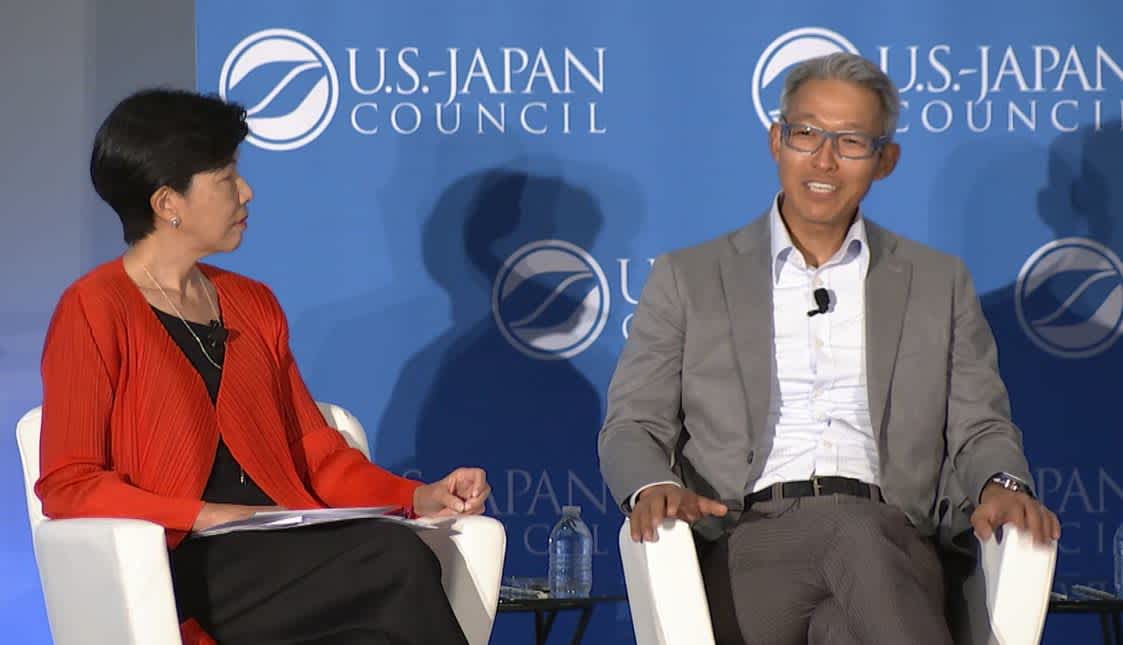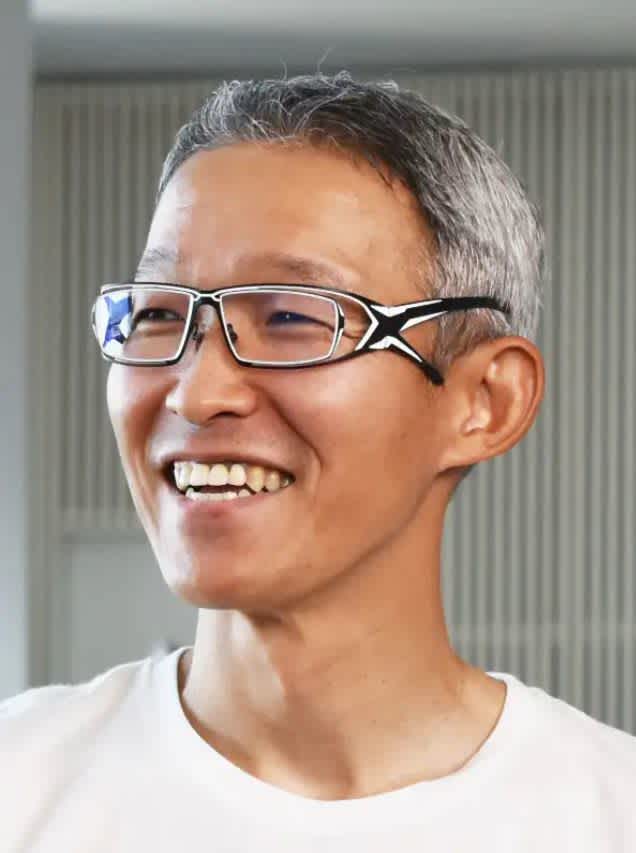Recruit Holdings President and CEO Hisayuki “Deko” Idekoba participated in a panel discussion at the U.S.–Japan Council’s annual conference in Washington, DC on November 9, 2023.
The U.S.–Japan Council is a nonprofit organization established to strengthen bilateral relations by fostering international leadership and exchanges. As part of its mission, it brings together U.S. and Japanese leaders across industries, generations, and backgrounds to network and discuss issues relevant to the bilateral relationship at the Annual Conference.
During the panel discussion, Deko spoke about globalization, innovation and entrepreneurship under the theme “Japanese Entrepreneurs Thriving in the United States: Building Success on New Shores.”
This article features Deko’s comments and his dialogue with moderator Kathy Matsui at the panel discussion.
Setting A Clear Mission and Working as One Team Drives Our Growth as a Global Company
Kathy Matsui: Recruit’s revenue outside of Japan was less than 1% in 2011. That figure is now at 57%. Can you tell us about Recruit’s journey to becoming a more global company through acquisitions in the U.S. like Indeed and Glassdoor? What were the challenges and successes along the way?
Deko: When we acquired Indeed, their revenue was about $80 million. Last year, HR Technology SBU revenue — mainly from Indeed — was about $8 billion, so they grew their revenue by about 100 times, and not just through acquisitions but through strong internal growth as well.
This success is down to everyone around me who made it happen. Instead of being acquired by a famous global tech company, for example, Indeed was bought by an obscure Japanese firm. The company also got a new CEO who couldn’t speak English well. They must have felt pretty scared and had a lot of challenges related to working with me.
That's why I focused on having a very clear mission, which was to become one team. I told them, “Hey, you don't need to work for Recruit, a Japanese company. We just need to keep focusing on our primary mission — We help people get jobs.”
As a result, unlike many other companies where the executives leave after the business is acquired, most of our Indeed executives stayed with us for a decade. In fact, the founders of Indeed and Glassdoor are still with us. That’s an unusual and amazing thing. I really believe that having a common goal and a great mission is essential for a global company to be one team.

Bet on Passion and Embrace Failures
Kathy Matsui: What are some key lessons that aspiring entrepreneurs and business leaders can benefit from? I’d say that in general many entrepreneurs in Japan are not aiming to be the global top but to become one of the leaders in the domestic market, whereas entrepreneurs in other countries aim for the U.S. or the global market from day one. Please share anything you’d like about globalization and innovation.
Deko: I think Japanese companies tend to prioritize avoiding risks in general. As you know, though, we need innovation, innovation, and innovation for an organization to grow. Sometimes I think that leaders in Japan believe it is their job to advise their teams on how to reduce risks so that they don’t fail.
It’s the opposite with me. If I hear that my team isn’t having many failures, I feel that something is wrong. We need a bunch of failures if we challenge ourselves to create something innovative. How we can create a good balance between taking risks and embracing failures is key. I believe that’s a major challenge for Japanese management.
Kathy Matsui: I view Recruit as a unique organization. There are many entrepreneurs who are ex-Recruit and they all tell us that the company’s culture welcomes risk-taking and even embraces failure — that it’s a safe place to fail. How do you create that environment?
Deko: We always say, “Bet on passion” — the idea of betting on the individual passions of each employee. It’s imperative to ask, “Who’s got the most passion about doing this?” instead of “Who has the experience or skill to do this?” It doesn’t matter how old the person is or what gender they happen to be. If the person is passionate, we bet on them.
Several years ago an investor said, “Hey, your company has a staffing business and a travel-related business. What’s your strategy?” I said “We’re betting on passion.”
I’m not sure if they liked that answer or not, but it’s true. We don’t need to pretend to be smart, or just be calculating three years’ revenue and EBITDA. That’s not our style. We’ve got so many people all over the world who are passionate about what they do. I believe the passion of every one of these individuals drives progress toward realizing our mission.
Find What You Can Do Best in the World
Lastly, Deko sent a message to the next generation.
Deko: It’s obvious that Japan’s potential growth rate is very challenging. We’ve got to figure out what we can be the best at and find something we can be most passionate about. My message is, if you can do that, no matter what job you have, which country you live in, or what nationality you are, you can become a world leader.
Please watch the video of Deko’s comments during the panel discussion at the U.S.–Japan Council’s annual conference.
Links:
Hisayuki Idekoba | Leadership
CEO Hisayuki “Deko” Idekoba’s Approach to Innovation — Inside Out | Recruit Holdings
Getting a job, fast and simple, with the push of a button: Q&A with Group President and CEO Hisayuki ”Deko”Idekoba - Inside Out | Recruit Holdings

Hisayuki “Deko” Idekoba
President, CEO and Representative Director of the Board of Recruit Holdings Co., Ltd.
Over the course of two decades, Deko has led the digital transformation of numerous Recruit Group businesses. He was responsible for transforming print publications and marketing sectors into online businesses across various sectors, including travel, beauty and dining. Appointed Corporate Executive Officer in 2012, he led the acquisition of Indeed and later served as Indeed’s CEO, helping Recruit Holdings become the leading global HR technology company it is today.